Why you can trust Tom's Hardware
To read about our monitor tests in-depth, check out Display Testing Explained: How We Test Monitors and TVs. We cover Brightness and Contrast testing on page two.
Uncalibrated – Maximum Backlight Level
There are many 27-inch gaming monitors available today, so we picked a varied group for comparison to the G27C4. For curved screens, we have the Aorus CV27F and its higher-res counterpart, the Aorus CV27Q, along with the MSI Optix MAG271CQR. Flat panels are the Dell S2719DGF and Acer RG270. Tech is a mix of VA, TN and IPS at both FHD and QHD resolutions.
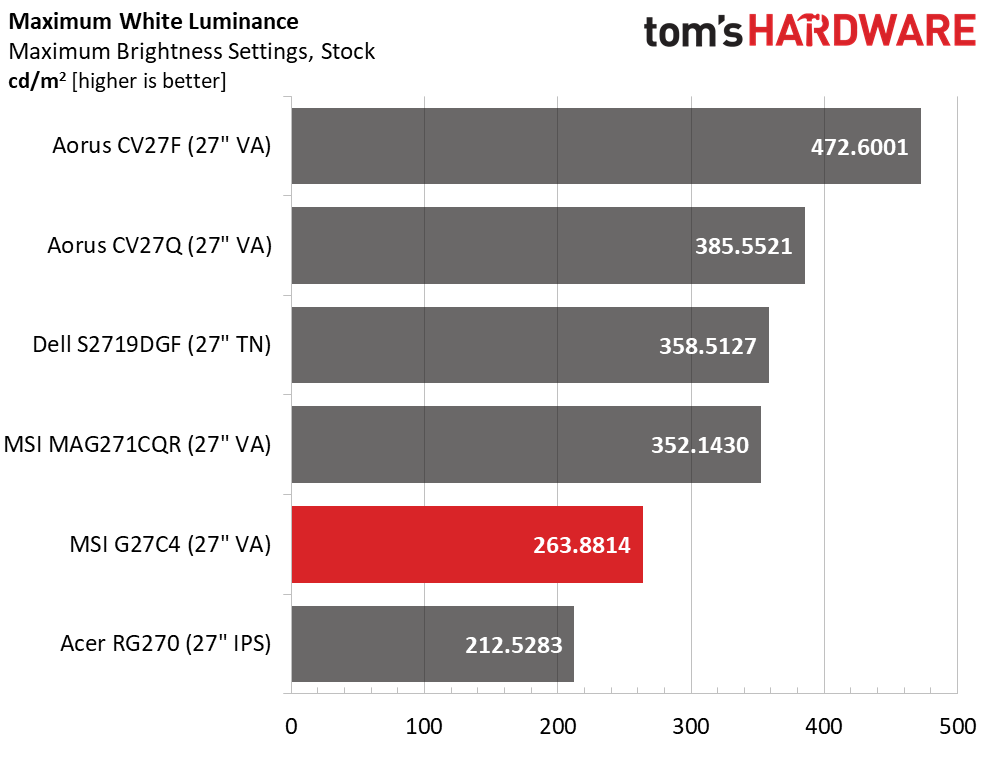
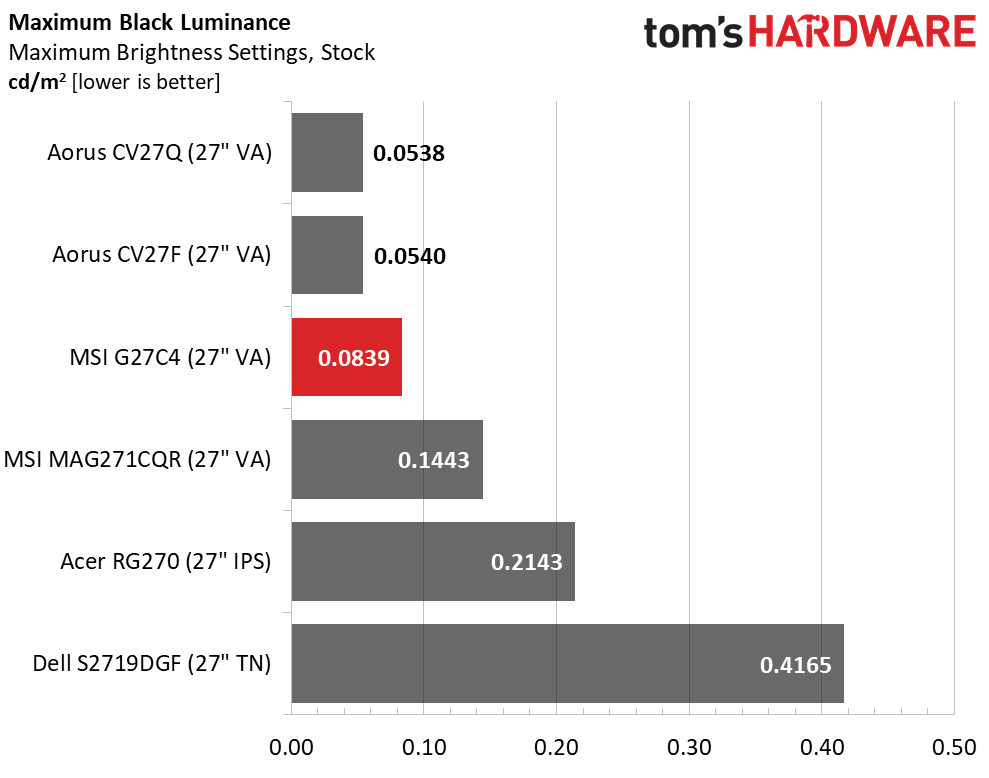
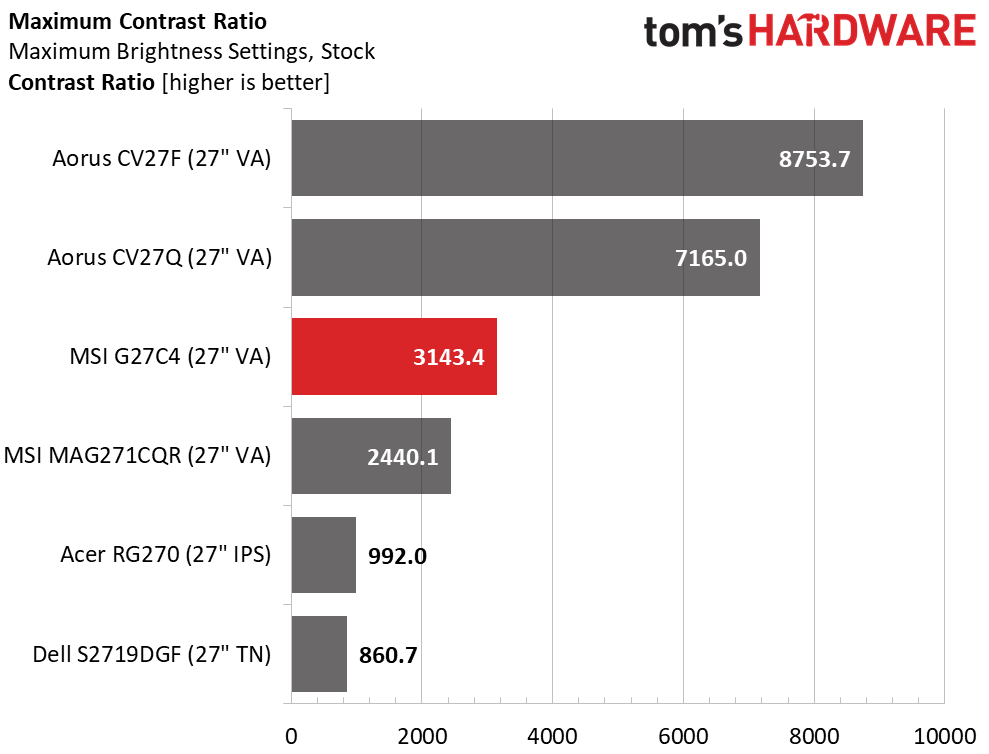
The G27C4 is rated for 250 nits brightness, but our sample easily beat that with about 264 nits max brightness. Still, that isn’t overly bright, so those gaming in sunny rooms might want to shop for a more luminous display. ADditionally, 264 nits doesn’t leave much headroom for the motion blur reduction feature, which cuts brightness by 40%. But that’s actually not a big deal because you’ll likely be sticking with adaptive refresh (FreeSync or G-Sync) and overdrive to keep the action smooth.
One place where MSI monitors tend to excel is contrast. However, our review focus finished behind the Aorus screens in the sequential test (it does better in the intra-image ANSI test below). But the G27C4 delivers an honest 3,143.4:1 that leads to an image that’s deep and detailed with richly saturated color.
After Calibration to 200 nits
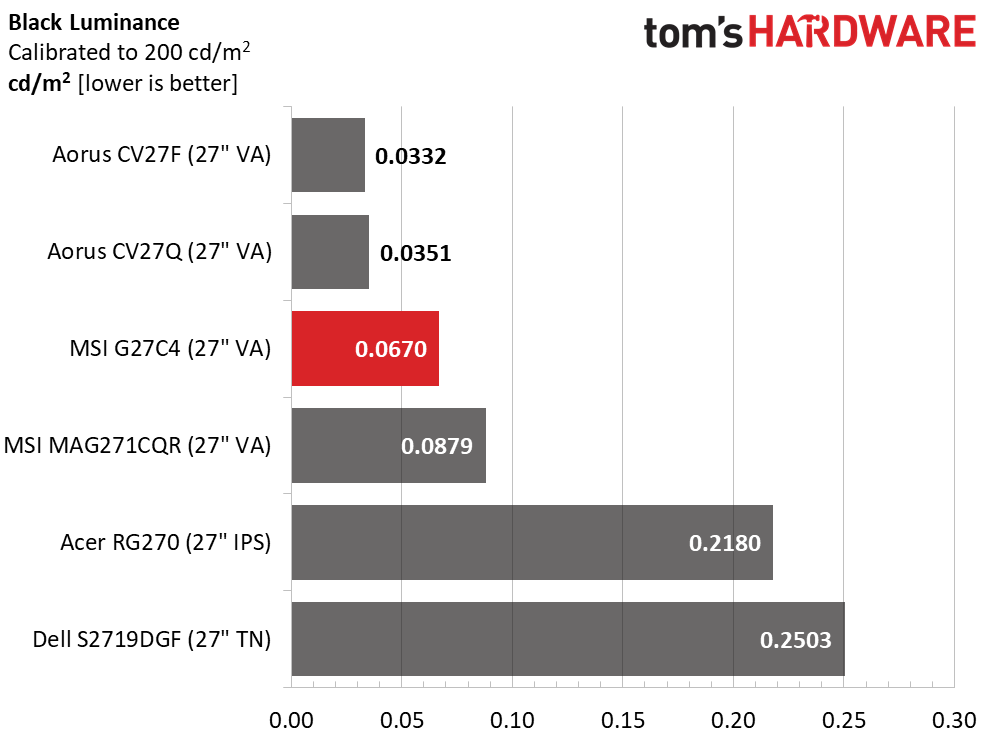
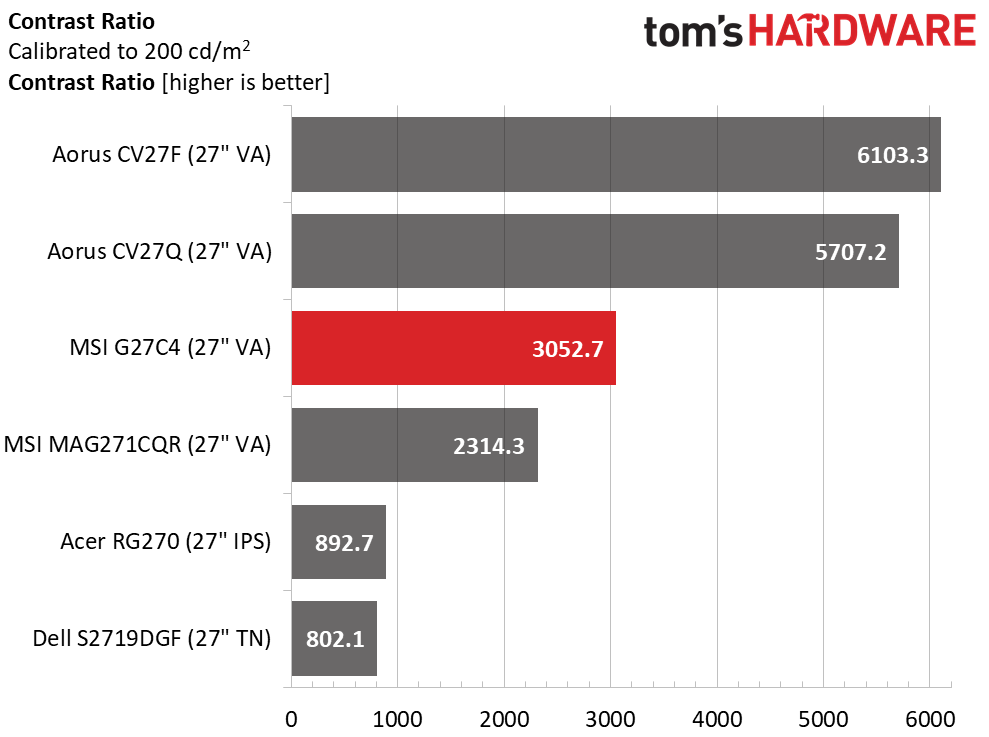
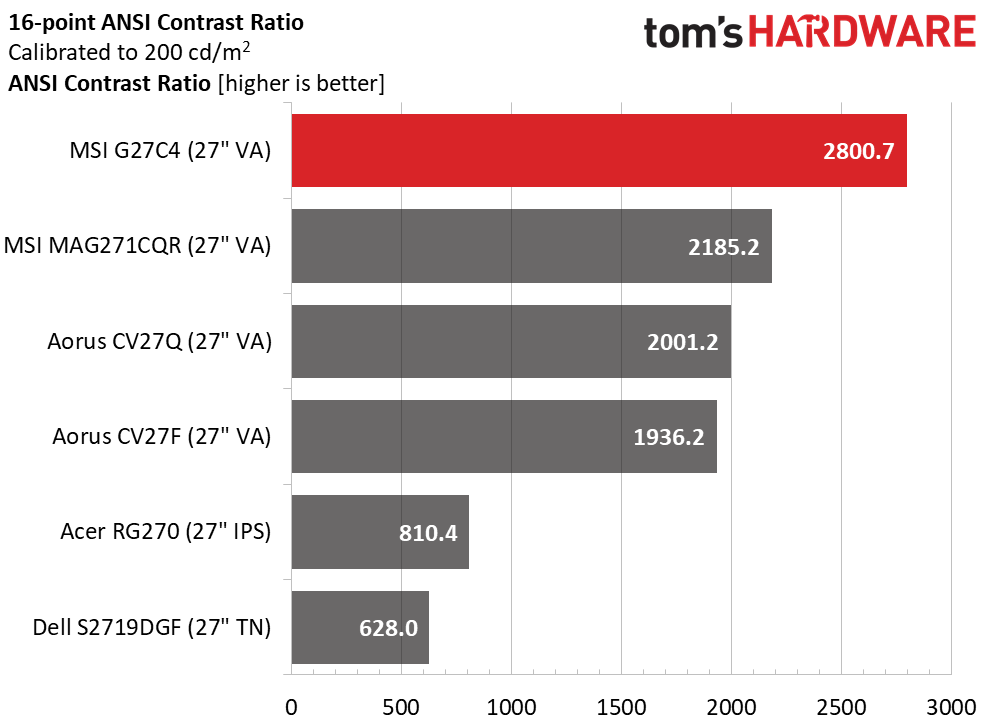
After calibration (see our recommended settings), the G27C4 remained in third place behind the Aorus displays for sequential contrast (second chart), but check out the ANSI result (third chart). 2,800.7:1 is one of the highest intra-image contrast scores we’ve ever recorded. It’s 800 points higher than the Aorus monitors, and that’s a difference that can be seen. The Aorus monitors absolutely look great, but the G27C4 looks better. You’ll barely notice the smaller resolution when the image has that much punch. And it’s aided by the wide color gamut, which we’ll talk about on the next page.
MORE: Best Gaming Monitors
MORE: How We Test Monitors
Get Tom's Hardware's best news and in-depth reviews, straight to your inbox.
MORE: All Monitor Content
Current page: Brightness and Contrast
Prev Page Features and Specifications Next Page Grayscale, Gamma and Color
Christian Eberle is a Contributing Editor for Tom's Hardware US. He's a veteran reviewer of A/V equipment, specializing in monitors. Christian began his obsession with tech when he built his first PC in 1991, a 286 running DOS 3.0 at a blazing 12MHz. In 2006, he undertook training from the Imaging Science Foundation in video calibration and testing and thus started a passion for precise imaging that persists to this day. He is also a professional musician with a degree from the New England Conservatory as a classical bassoonist which he used to good effect as a performer with the West Point Army Band from 1987 to 2013. He enjoys watching movies and listening to high-end audio in his custom-built home theater and can be seen riding trails near his home on a race-ready ICE VTX recumbent trike. Christian enjoys the endless summer in Florida where he lives with his wife and Chihuahua and plays with orchestras around the state.